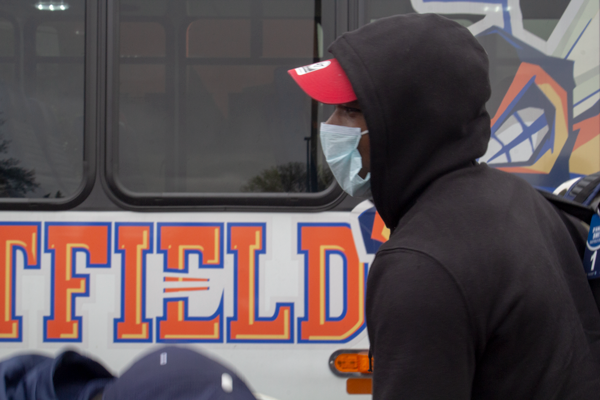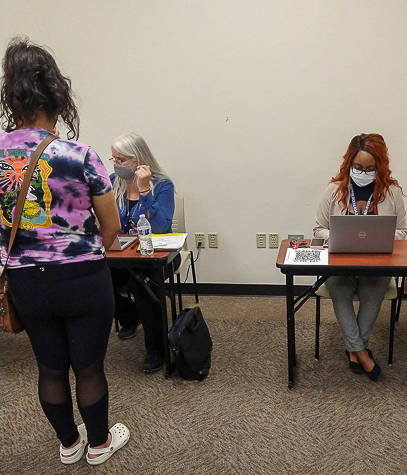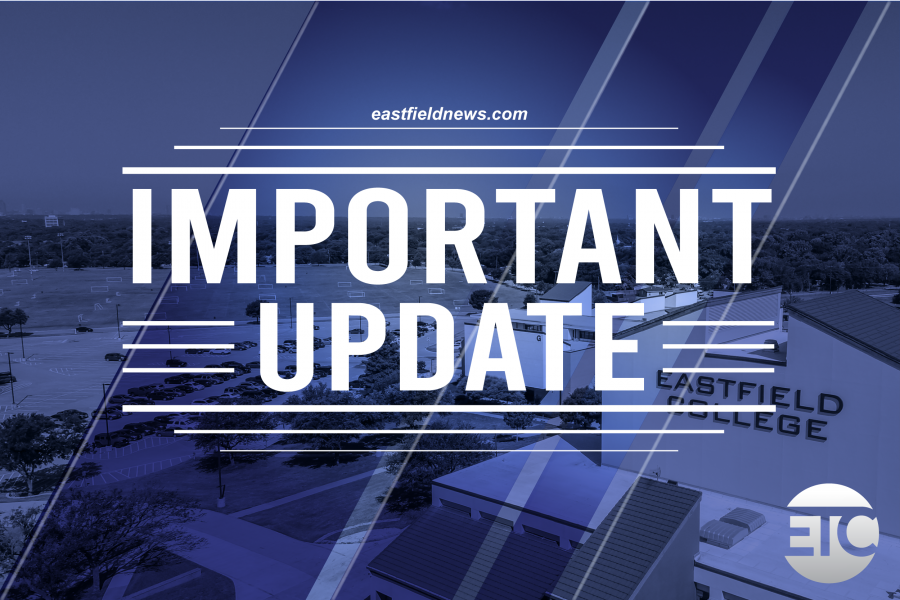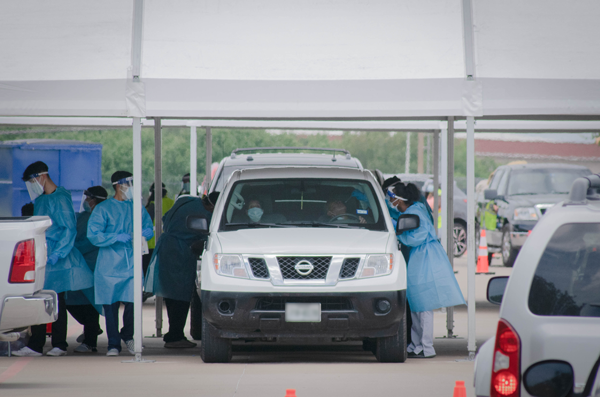
By SKYE SEIPP
@seippetc
Editor’s note: The Et Cetera was unable to access the call until roughly 11:30 a.m. due to technical issues. The meeting was scheduled to start at 11 a.m.
Chancellor Joe May announced today that spring break will be extended to March 29 and that classes will be moved to online-only at least through the end of April during a telephone meeting with the Board of Trustees.
Other topics included pay for employees, emergency aid for students and budget implications. All campus and community events through April 15 have been canceled and a decision on graduation will happen by April 15.
Classes will move to online only at least through the end of April, May said
— Skye Seipp (@skyesighp) March 16, 2020
May said the district would continue to pay all categories of employees for the near future while continuing to evaluate the situation. He added that the district is mindful that work-study students depend on their income, but their job conditions may change.
The announcements came the same day that Dallas closed all bars, restaurants, movie theaters, gyms, night clubs and entertainment venues until the end of the month and Dallas-ISD closed indefinitely after five more cases were reported in Dallas, bringing the total to 19.
“Certainly, we’re going to be needing increased guidance for employees over the age of 65 and what we may need to do to treat them differently or those with underlying health conditions,” May said. “We’re going to work every way possible to ensure that particularly our most vulnerable students don’t pay the highest price for this crisis.”
May said operations will be limited, but services to support students will resume on March 30. He added that the district will be working this week to figure out more details on how these services will work with respect to social distancing. He said the district will be looking at ways to acquire technology for employees and students who don’t have access to them. The district is making a deal with T-Mobile today to purchase mobile hotspots and tablets.
[READ MORE: Coronavirus timeline]
The district will be looking at having video conferencing for tutoring services and opening computer labs with social distancing protocols. Libraries may also be opened with limited access.
“Obviously we won’t be opening up every facility and every lab, but some limited access should be available,” May said.
Training resources for faculty are also going to be made available, and May said they will have faculty ask students about their ability to work online and encourage faculty to seek alternative assignments when necessary.
District legal counsel Rob Wendland said the district would not be required to pay its employees under the Families First Coronavirus Response Act passed by the U.S. House of Representatives on Saturday but added that the district intends to continue paying employees for the foreseeable future.

“Our employees are our most important resource and we’re very sensitive to the fact that we are in very uncertain times,” Wendland said. “We are literally changing minute to minute, if not hour to hour with respect to the mandates and directives that we’re receiving. We know there is a lot of uncertainty among our employees, and we want to be very sensitive to that.”
He said the district will be looking to ensure that employees have the resources available to them to work from home. He added that the district will be looking at flexible and rotational work schedules for those needed on campuses.
“I just want to be clear to the board that this is not business as usual with these steps that we’re taking,” May said. “And no doubt in the process there’s going to be some inconsistencies that may occur and some other issues that are there. We’ll do the best of our ability to be considerate of people, be equitable and be good stewards of the taxpayers’ dollars during this process.”
May asked Chief Financial Officer John Robertson to allocate $20 million for emergency spending.
Robertson said he looked into ordering laptops, but that delivery would not be until the middle of April.
May said technology shared with students and employees would be treated as a loan from the district.
In a crisis situation, board policy states that the chancellor does not need the approval of the board for emergency spending.
District leaders will ask the DCCCD Foundation for $1 million in emergency support funds for students. Pyeper Wilkins, chief of advancement initiatives, expects the funds to be approved. Students who need aid can use the app, Edquity, to request financial assistance. Those approved typically receive funds within 48 hours.
“A million dollars sounds like a lot of money, but it’s not a lot of money in this case,” Wilkins said. “It’s what we can do immediately, though, and we anticipate they will approve us next Tuesday.”
May added that there are meetings taking place with local businesses and other nonprofits on how to support K-12 students and that he had a telephone conversation this morning with about 80 pastors on how to support students.
However, he believes local nonprofits will be tapped out from how much support they can give, and that the district needs to accommodate employees and students as much as they can internally.
“In our case, we need to plan to do as much as we possibly can for our employees, for our students out of our resources knowing that there will be other entities, K-12 [and] other students in far more dire need than us,” May said. “We’ll continue to be in communication and support of those and help those organizations support our students. But I think that’s going to be limited due to the scale and breadth and depth of this particular crisis as we go forward.
https://eastfieldnews.com/2020/03/13/17937/













